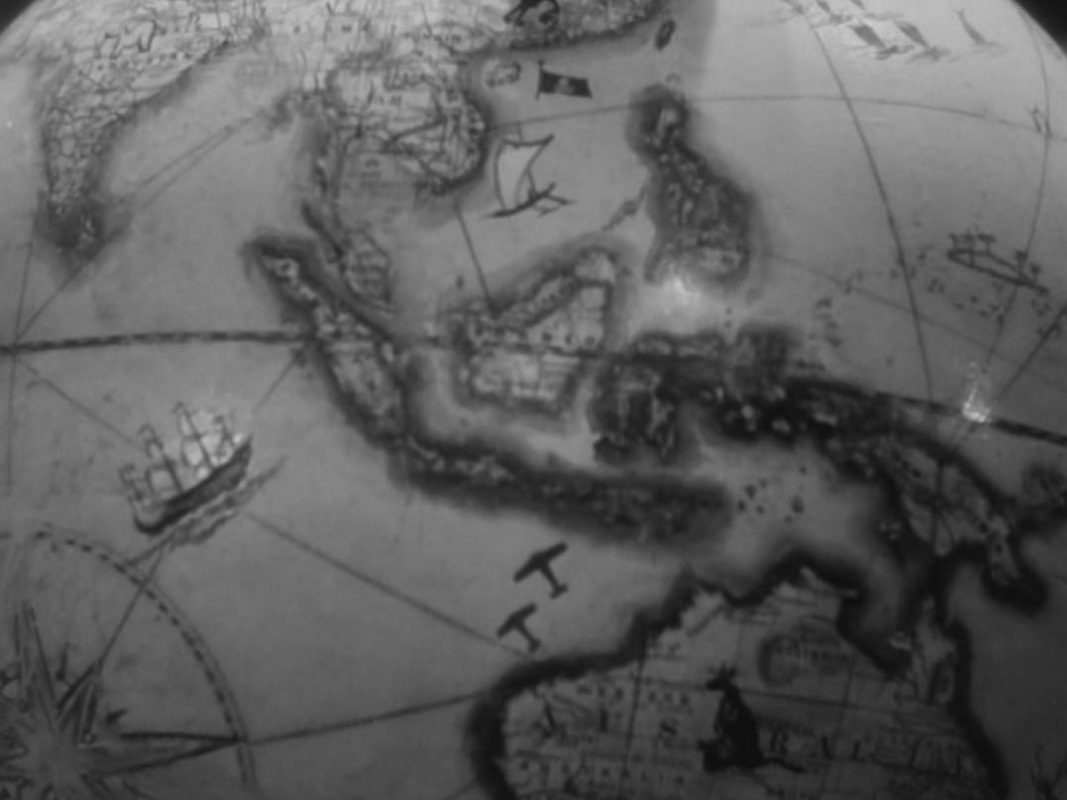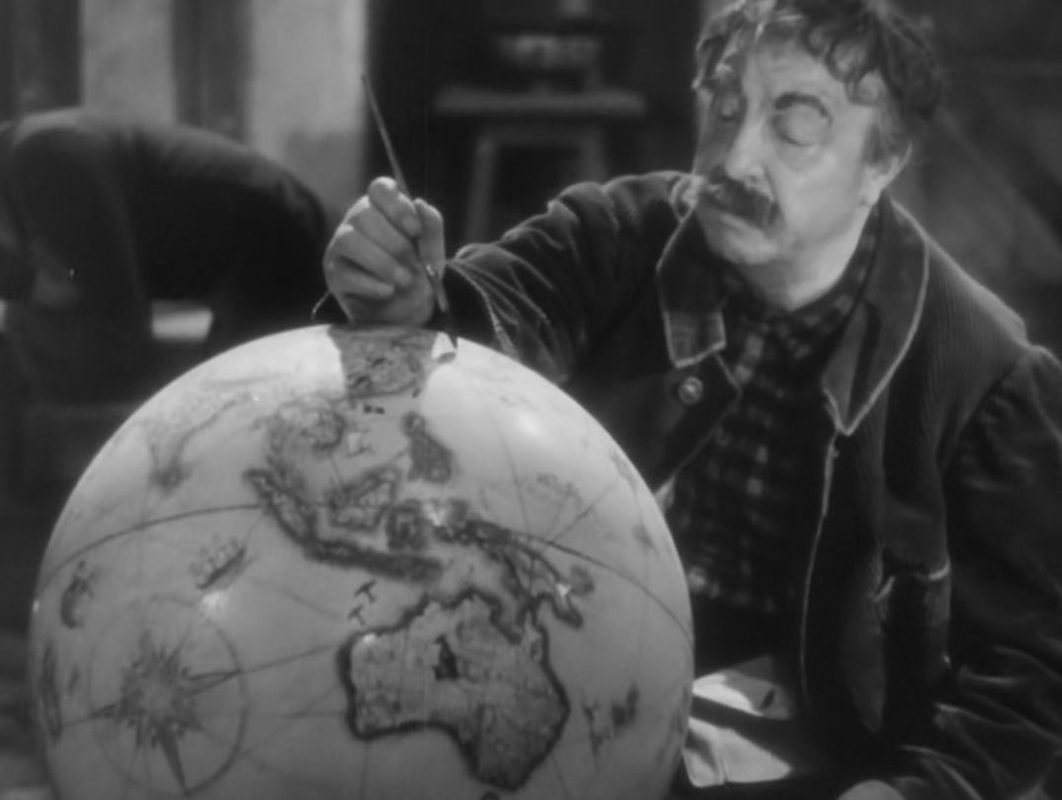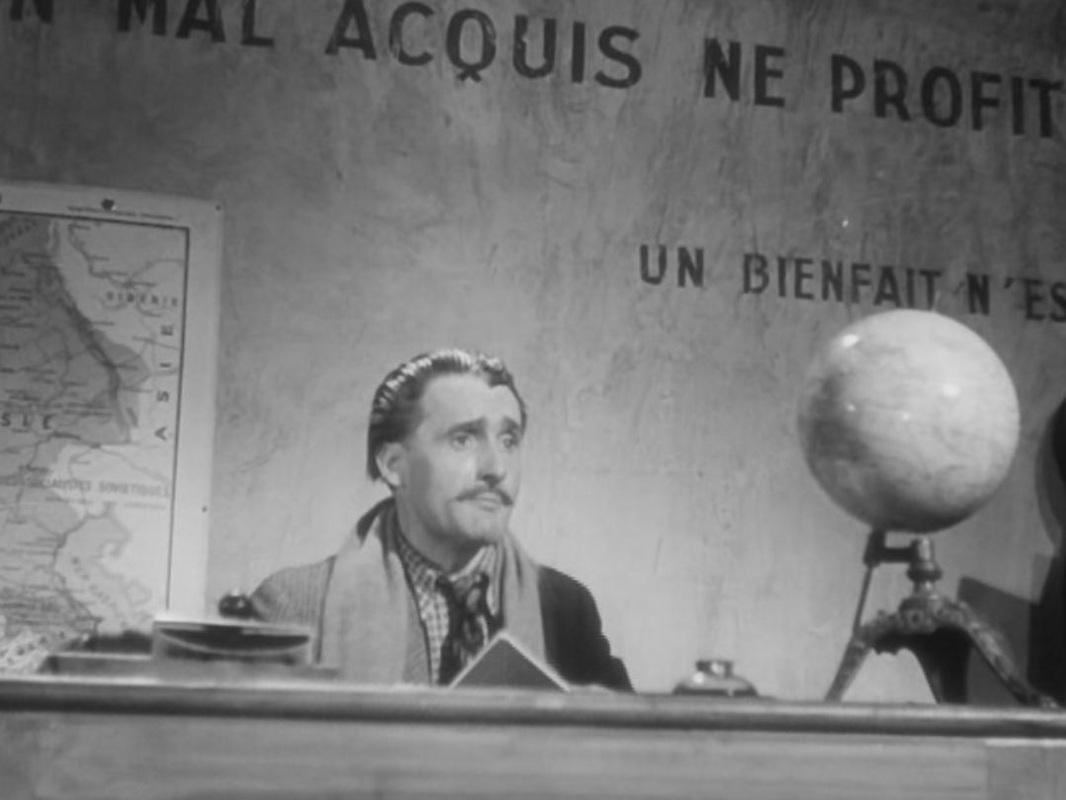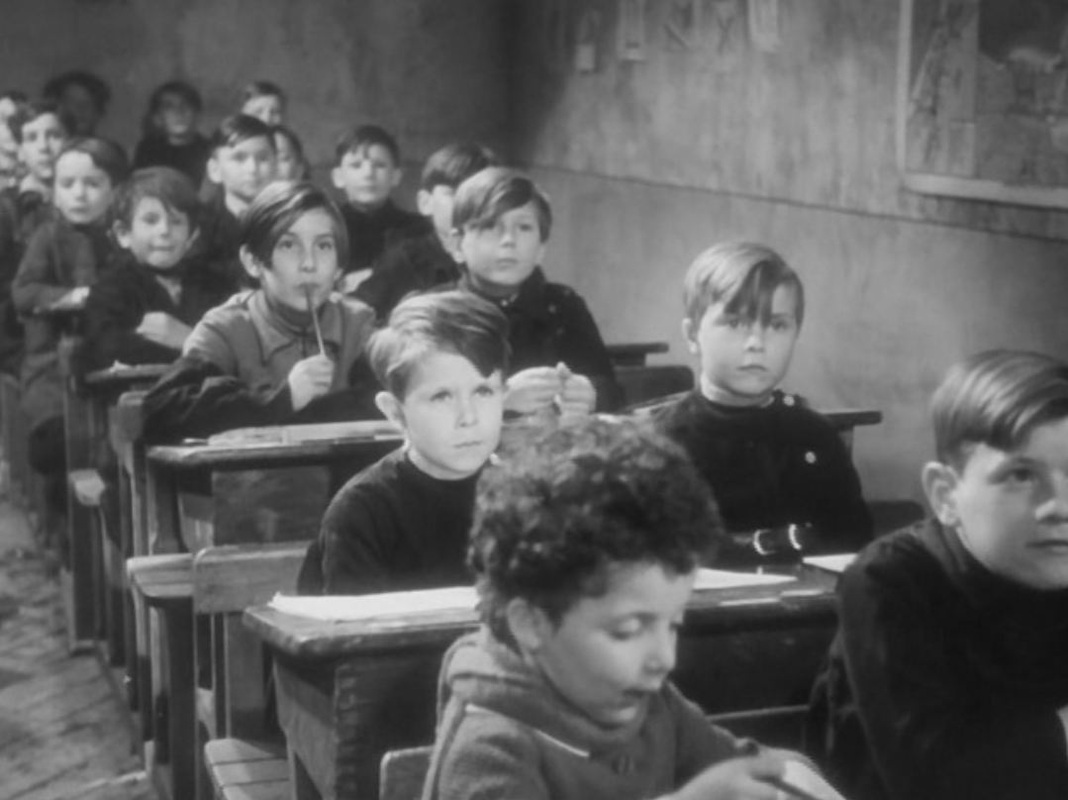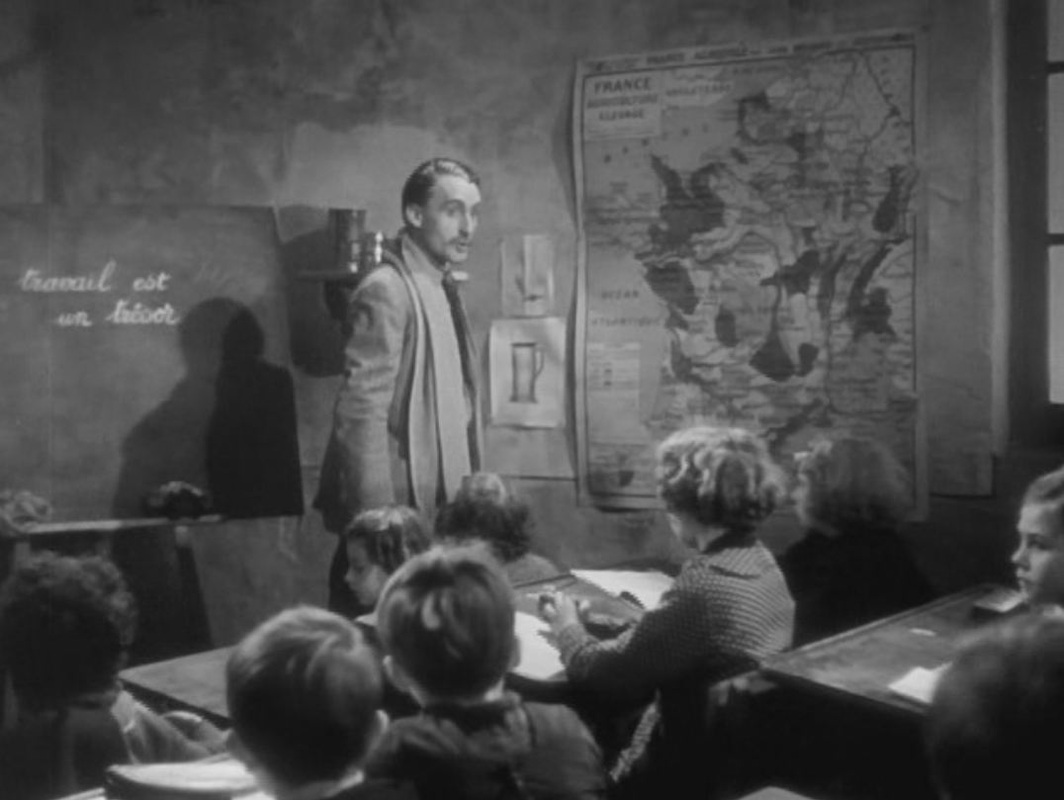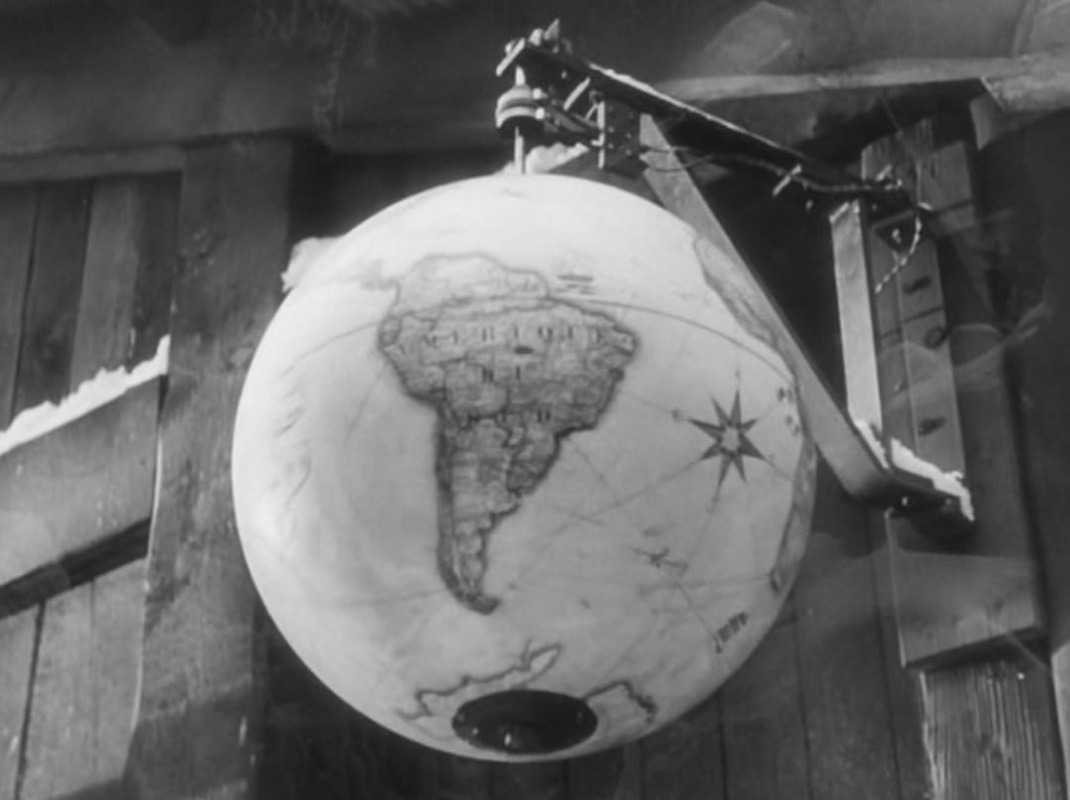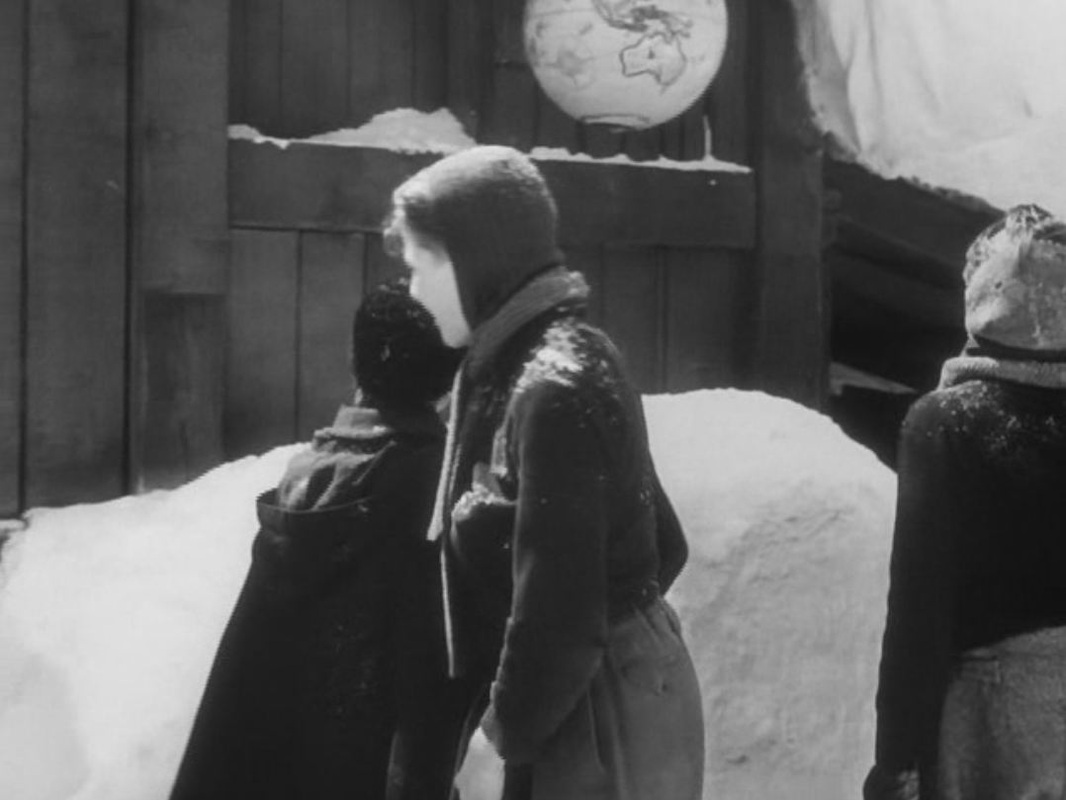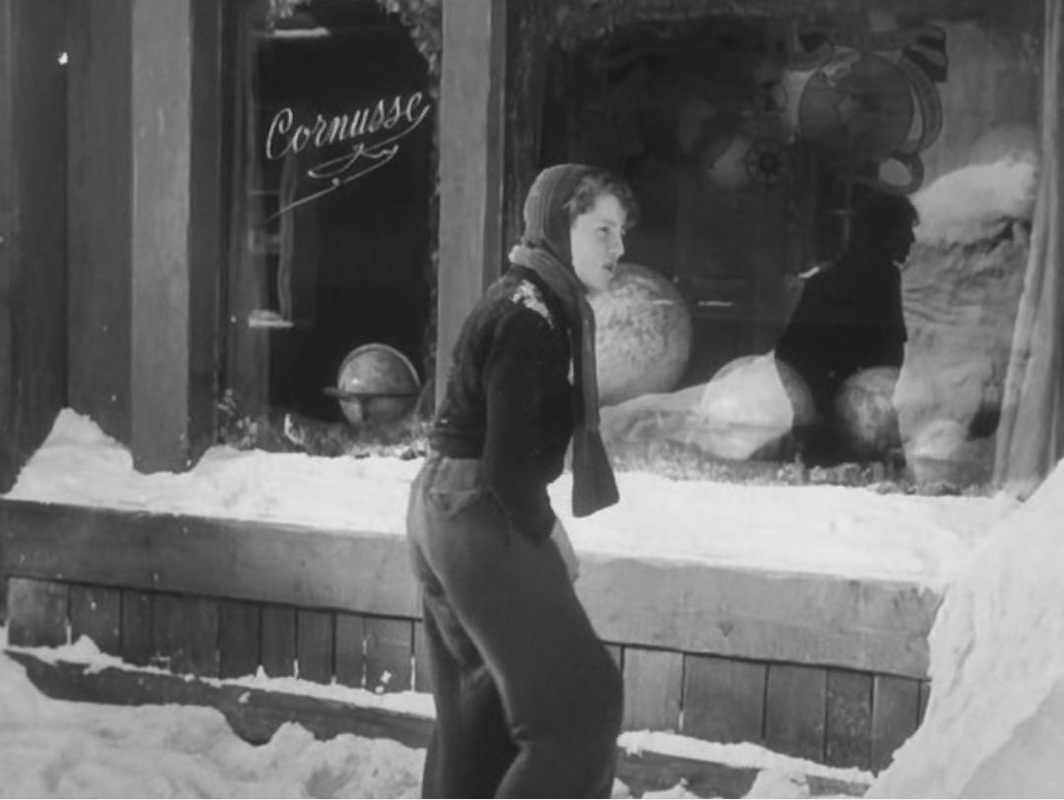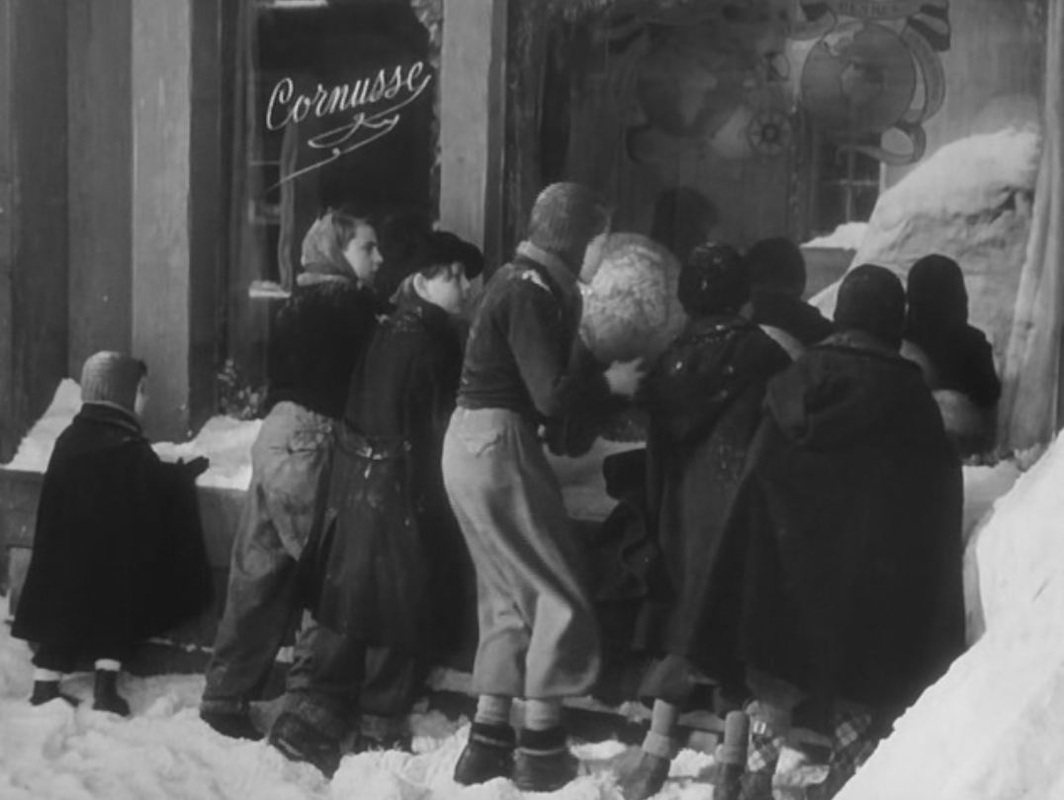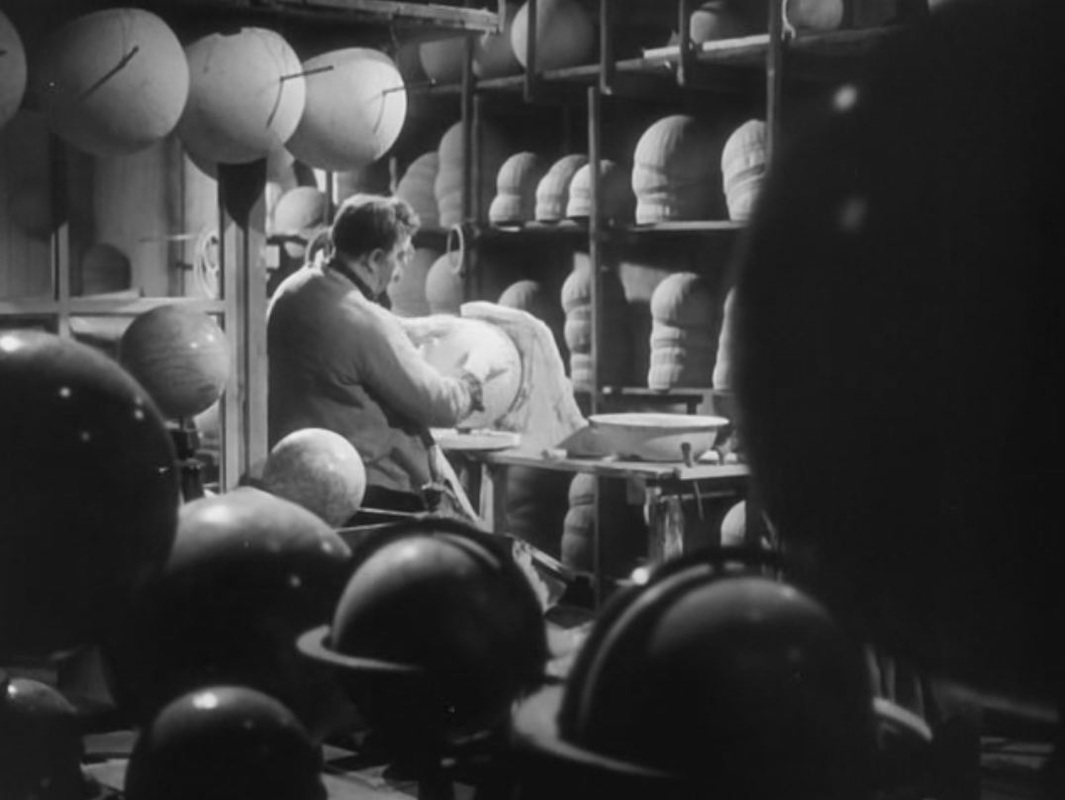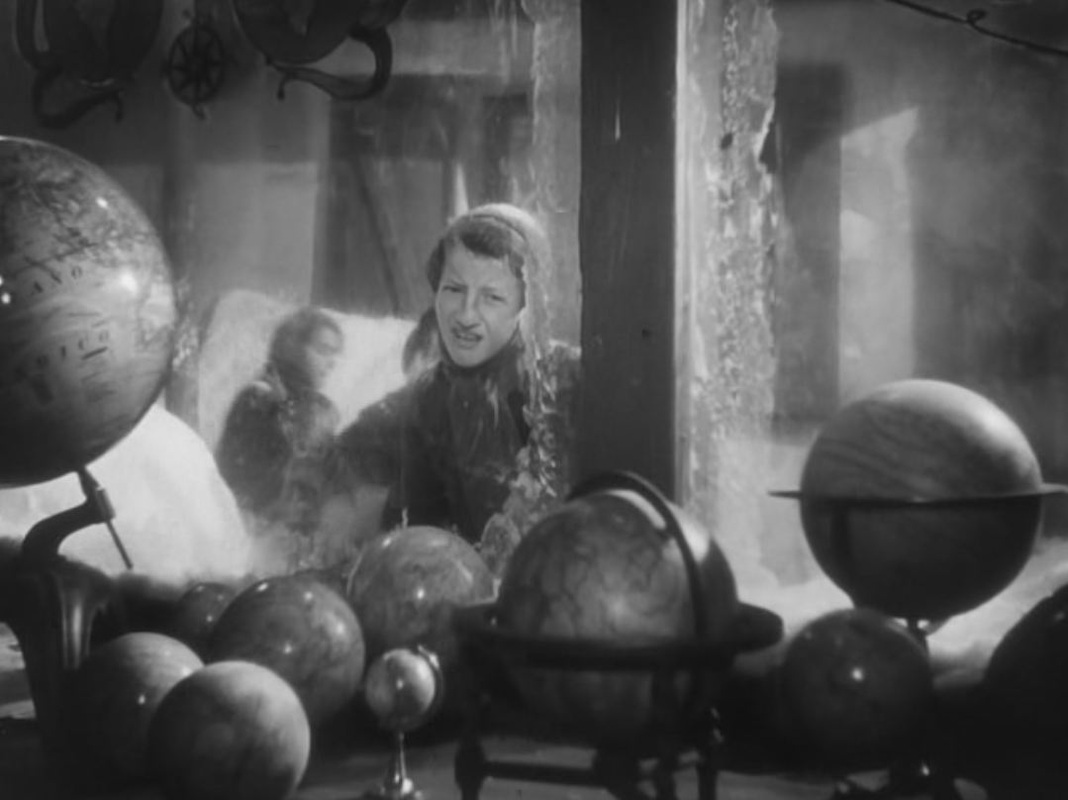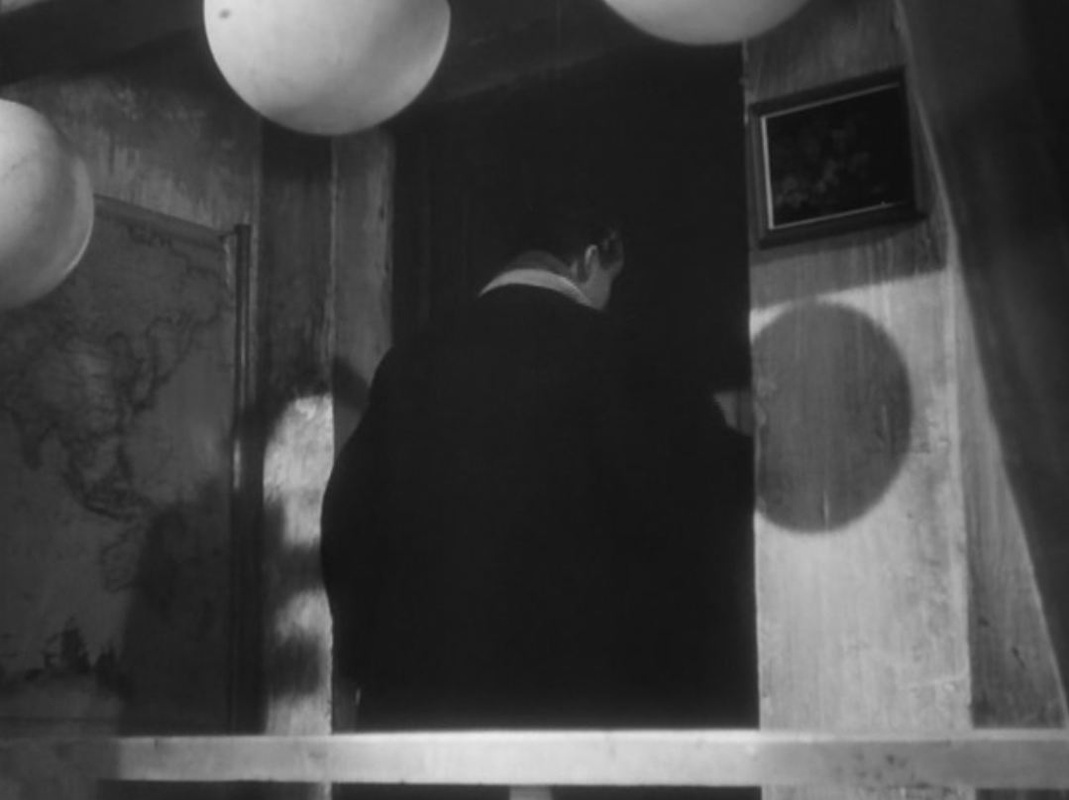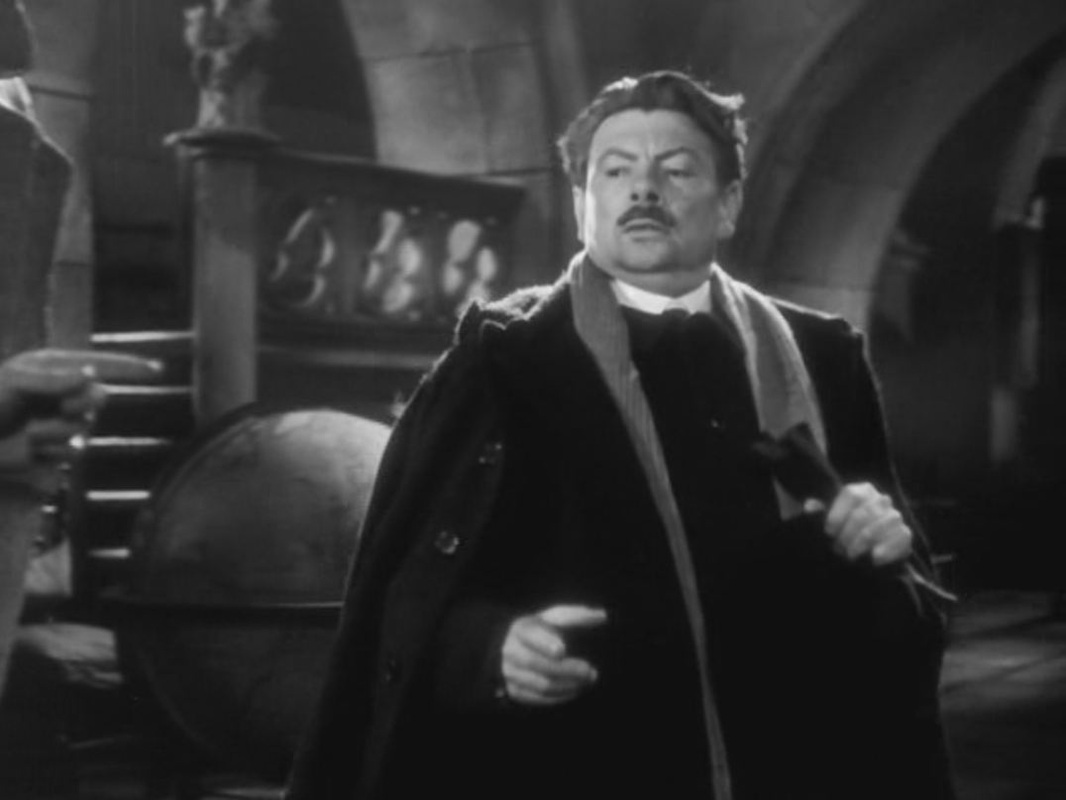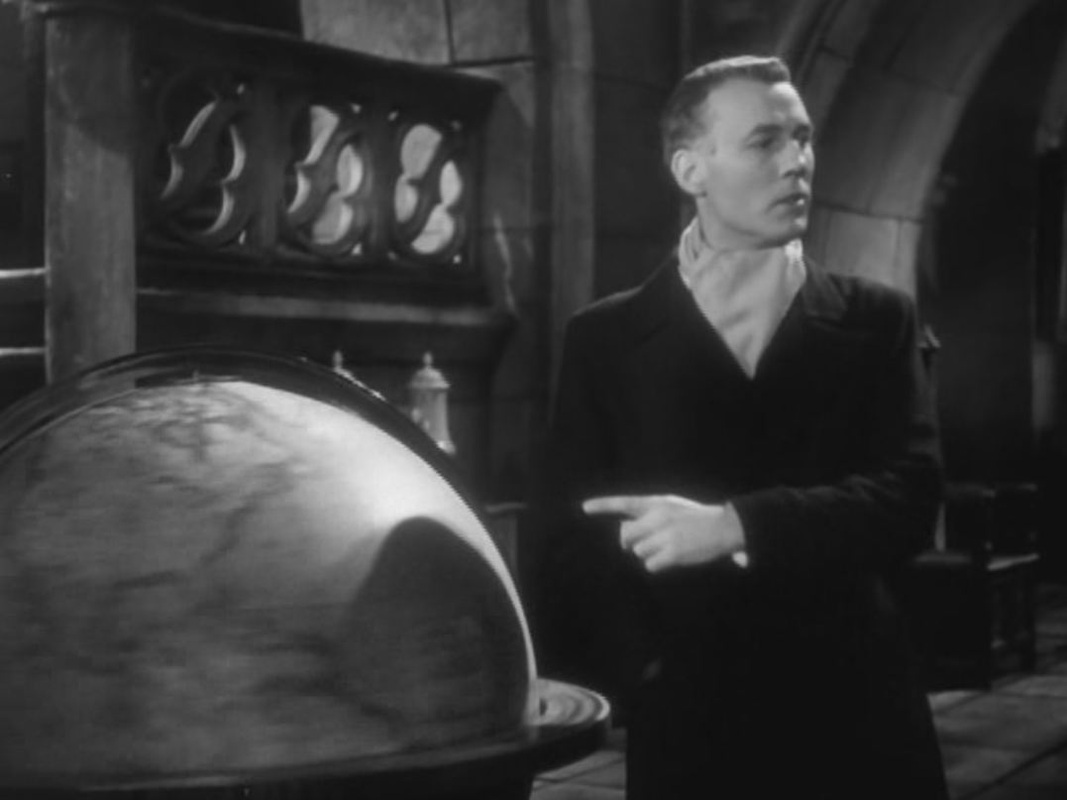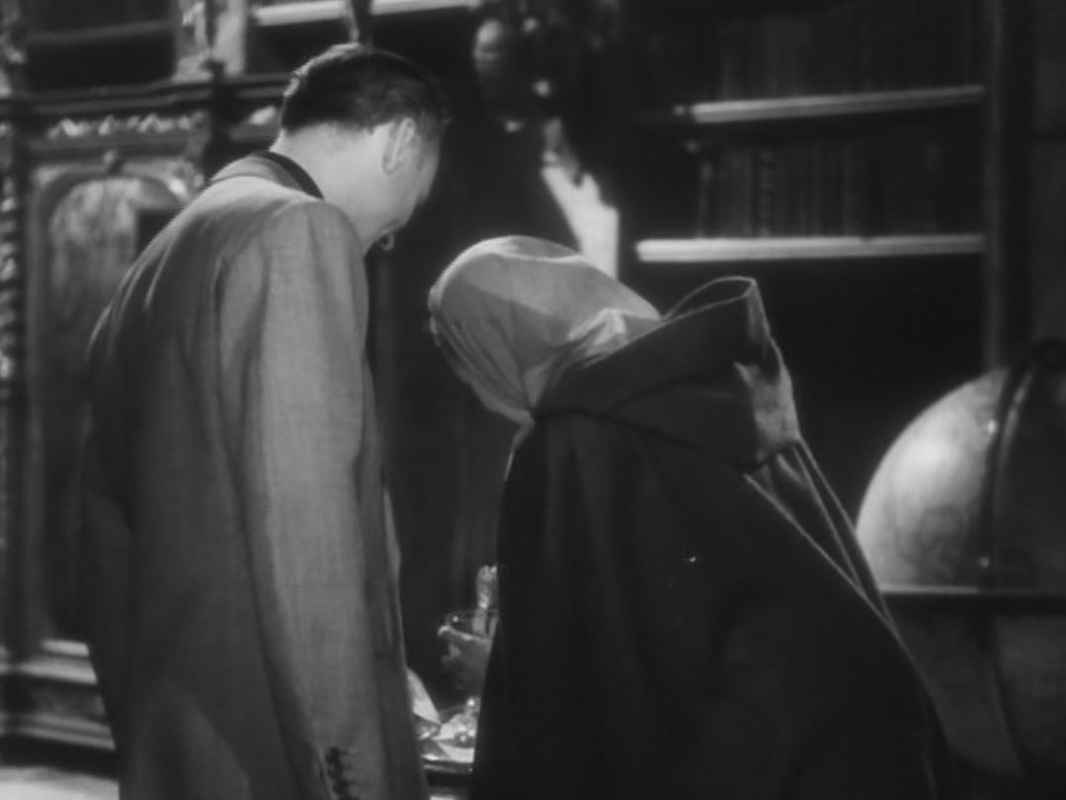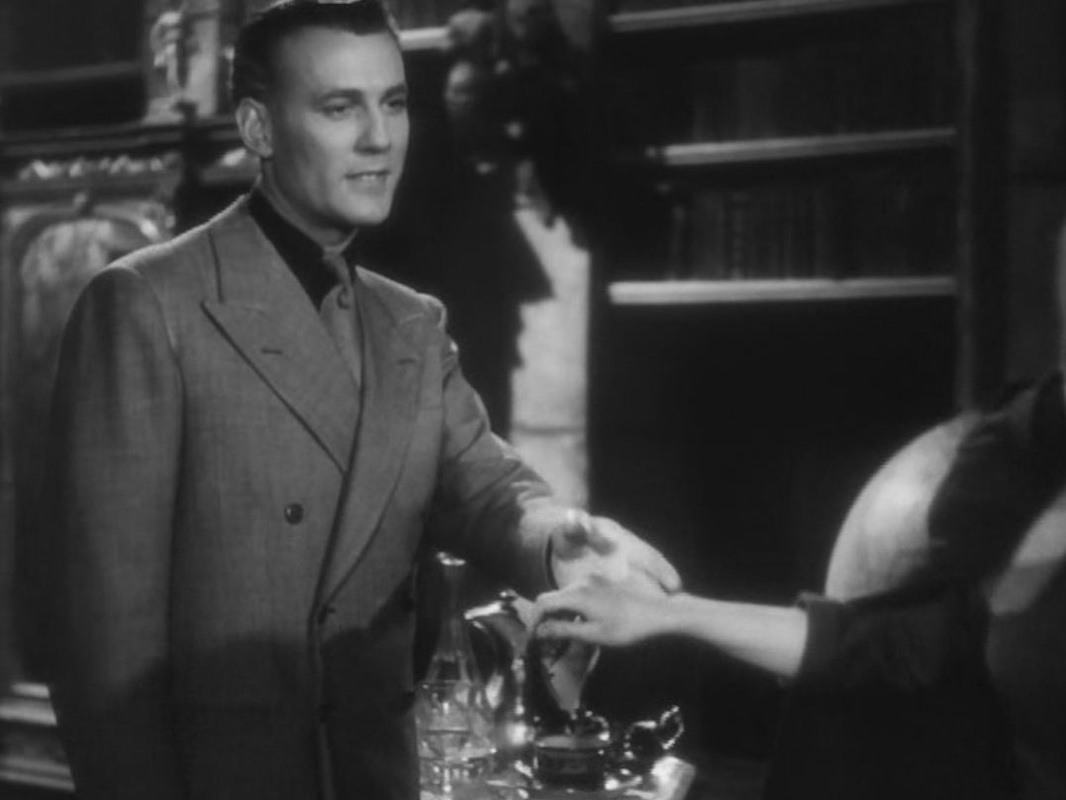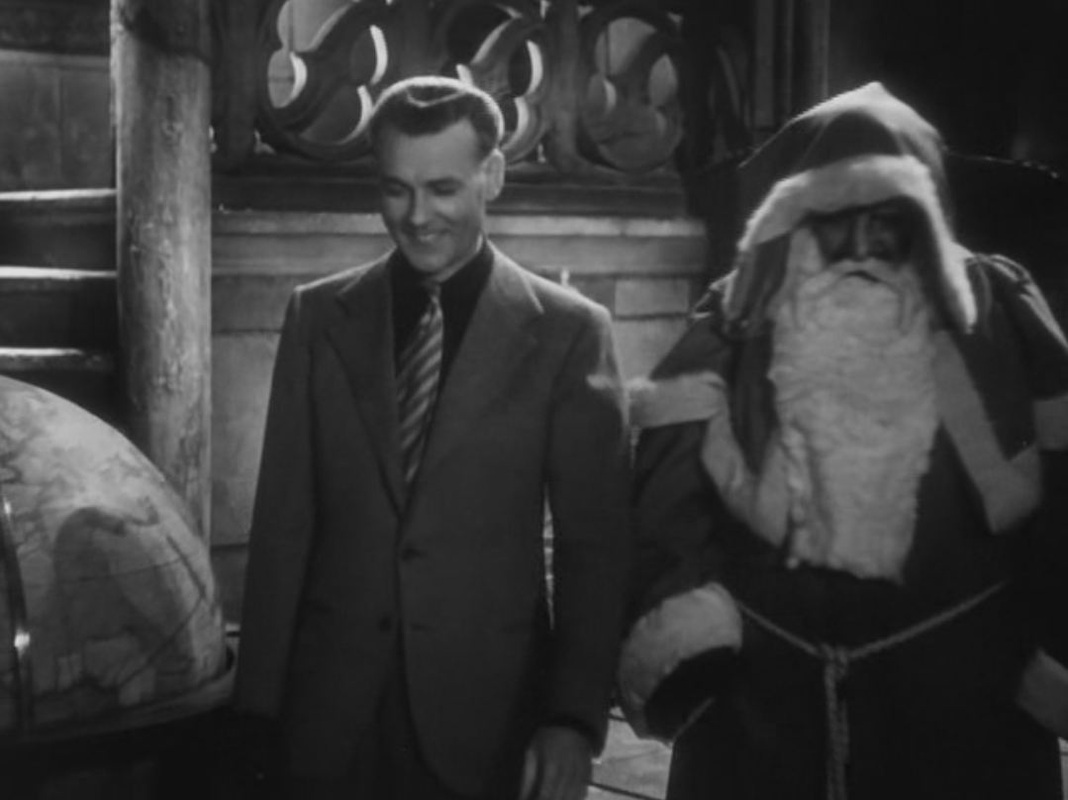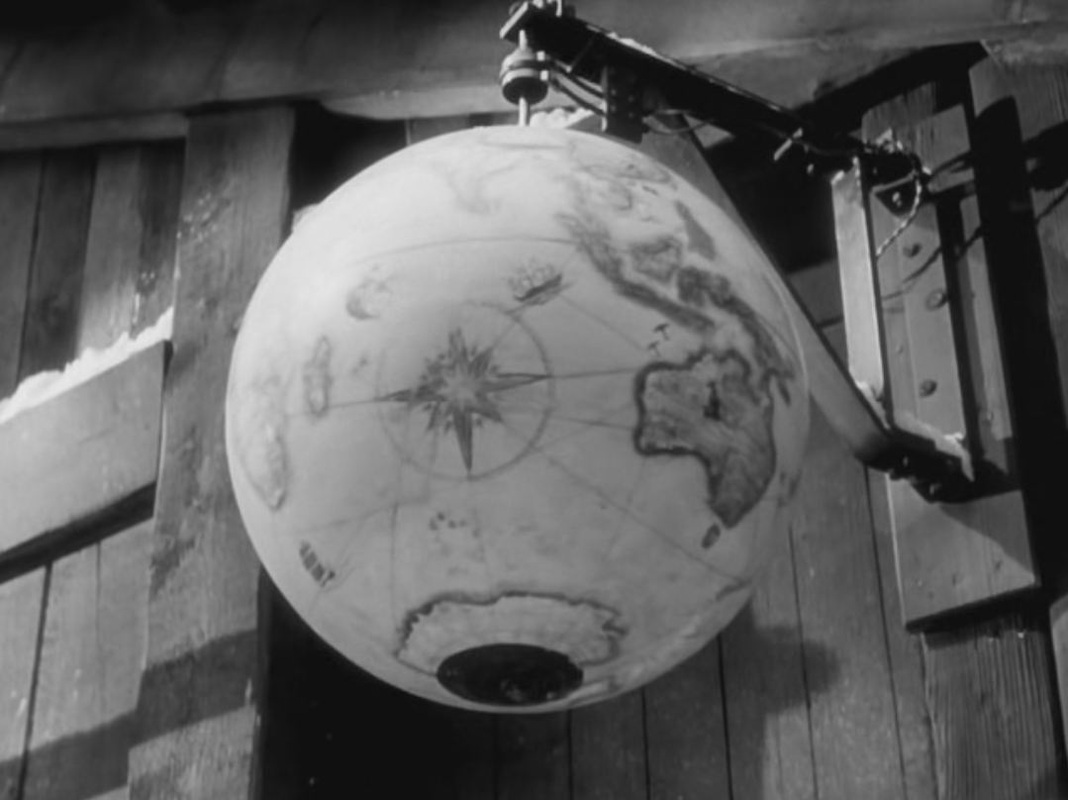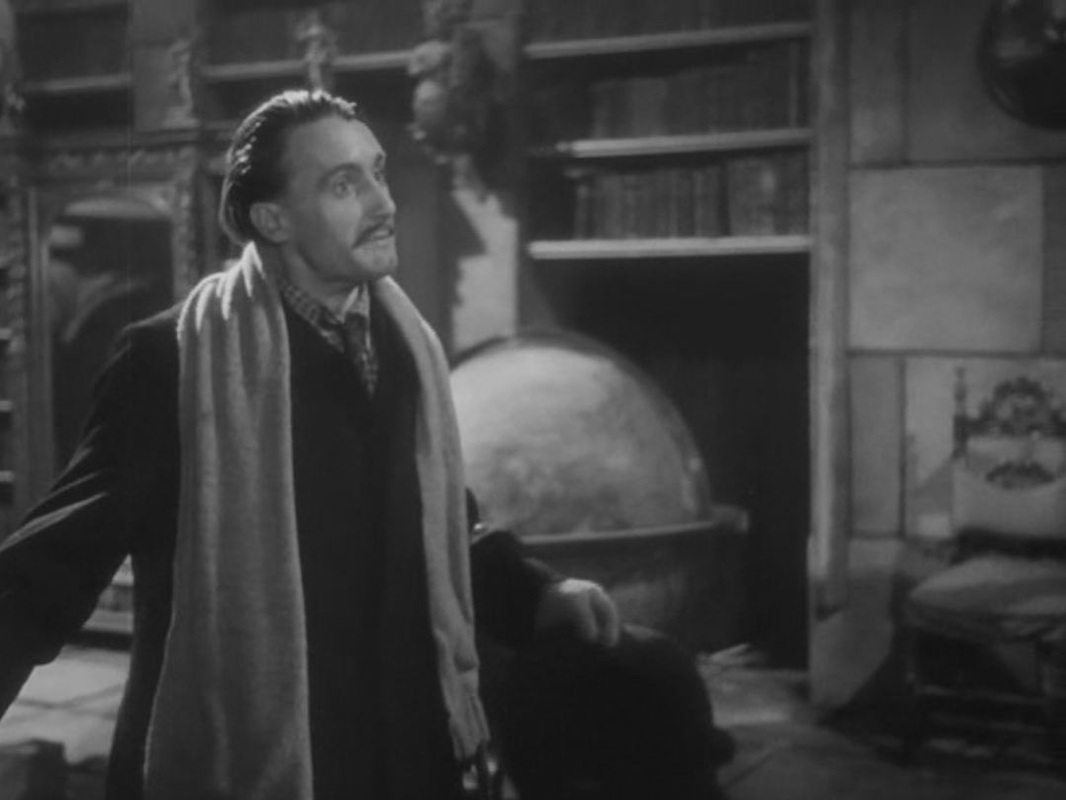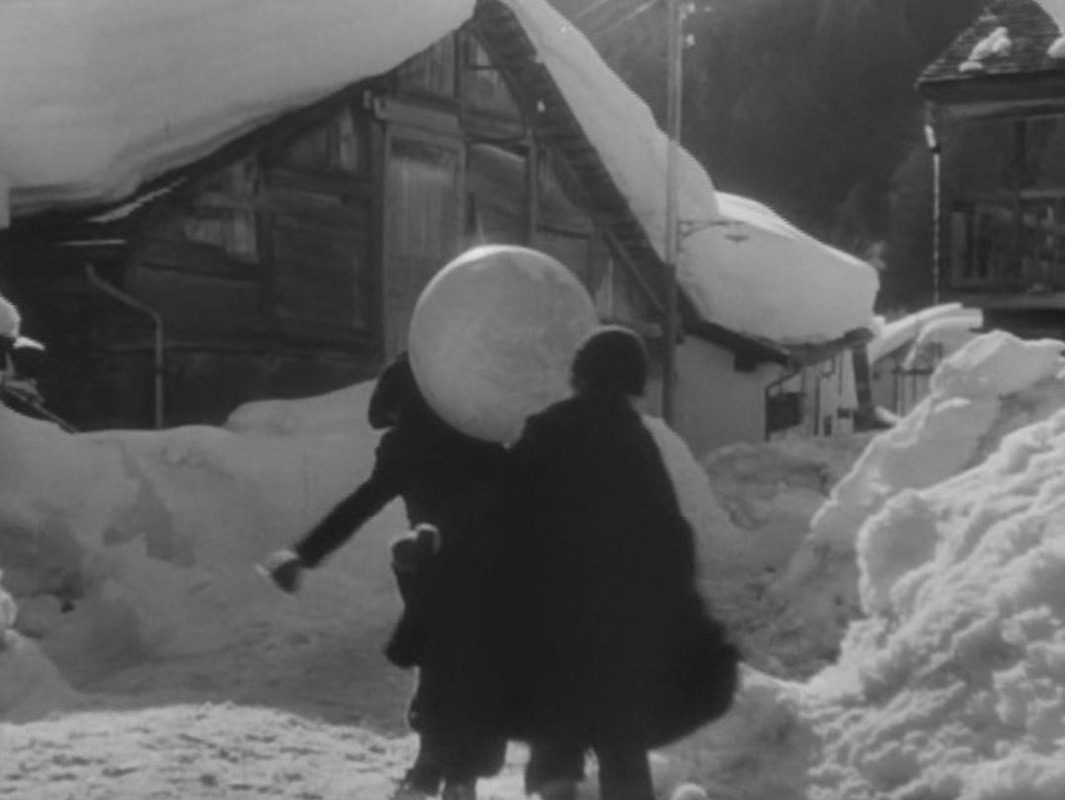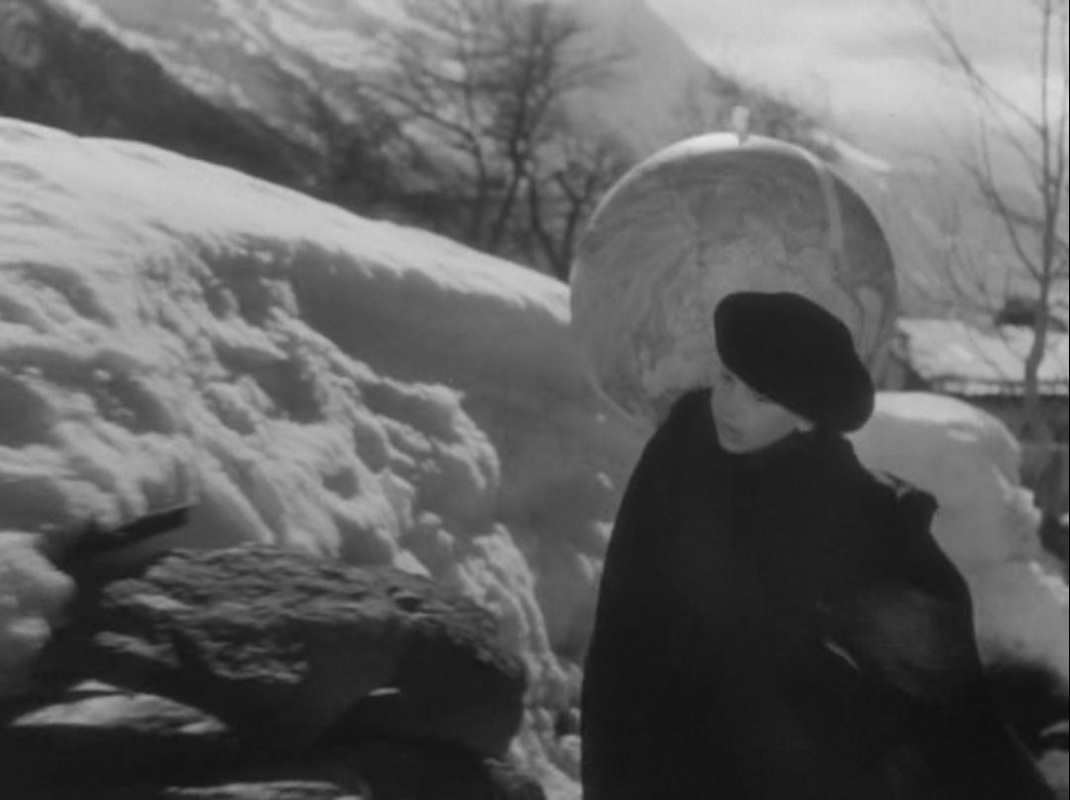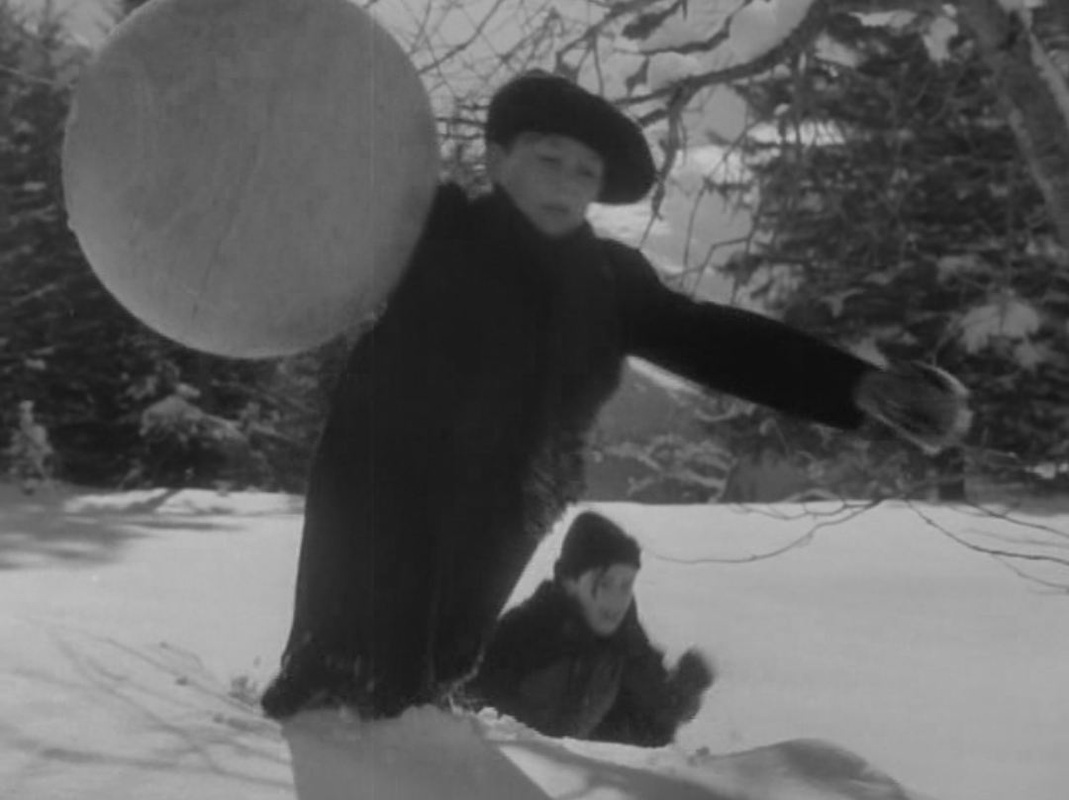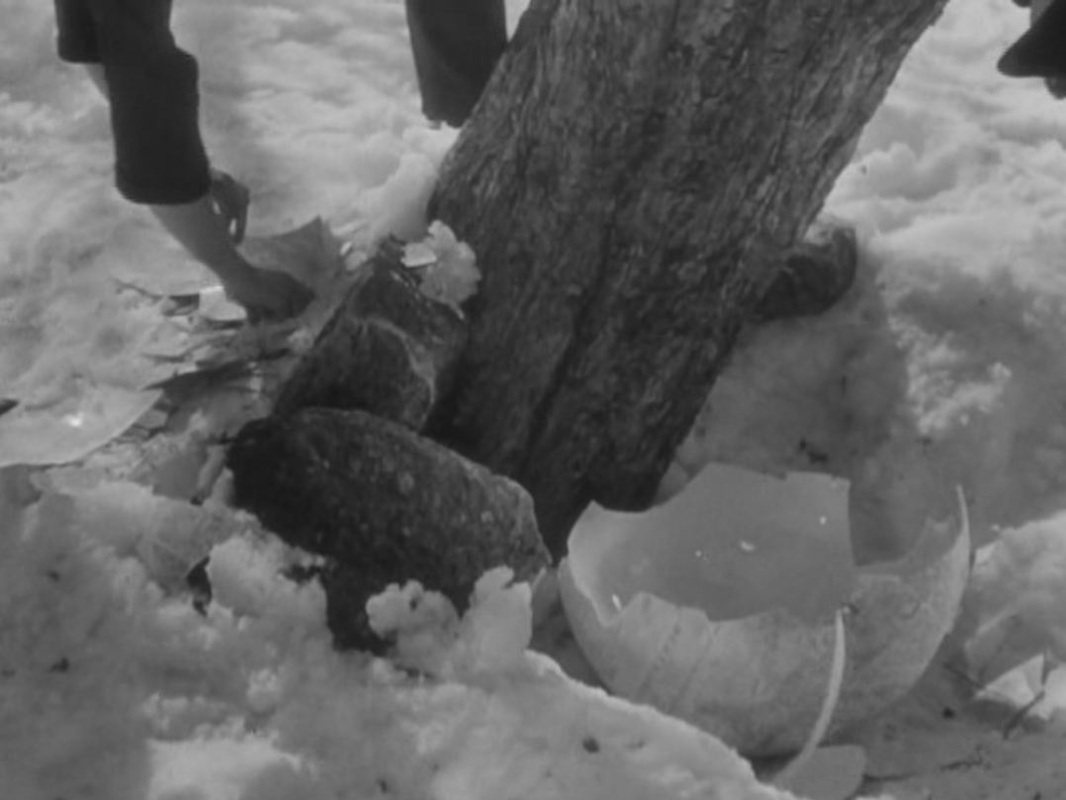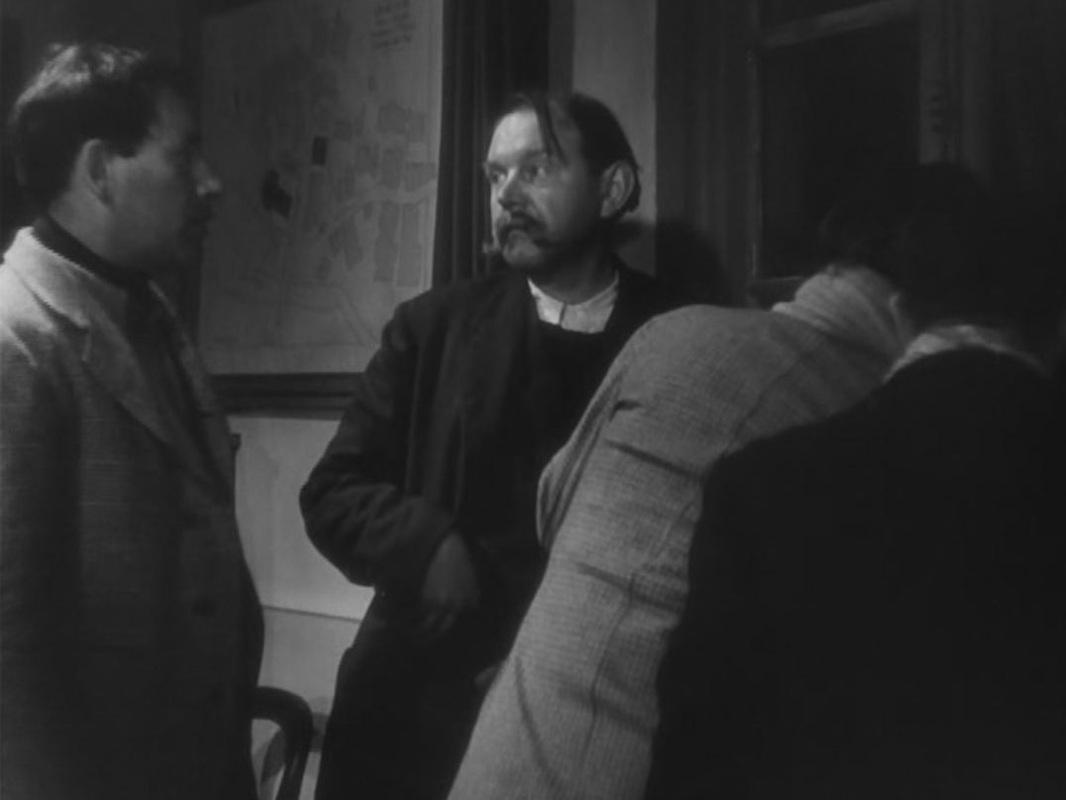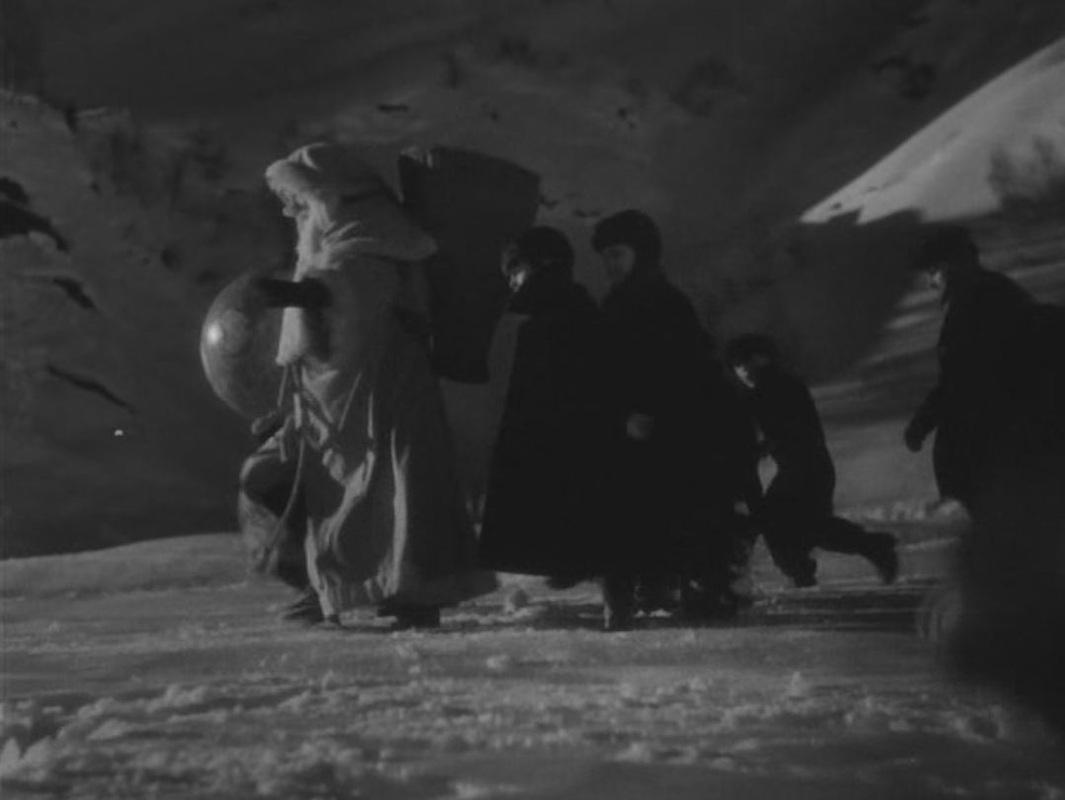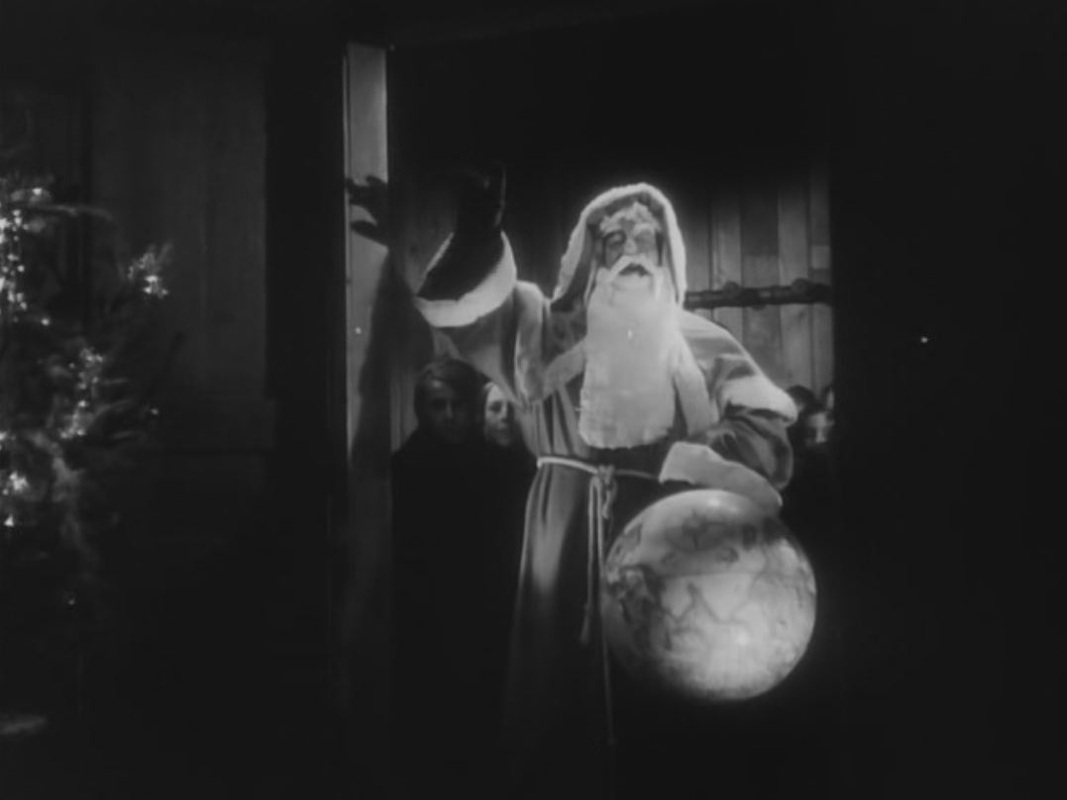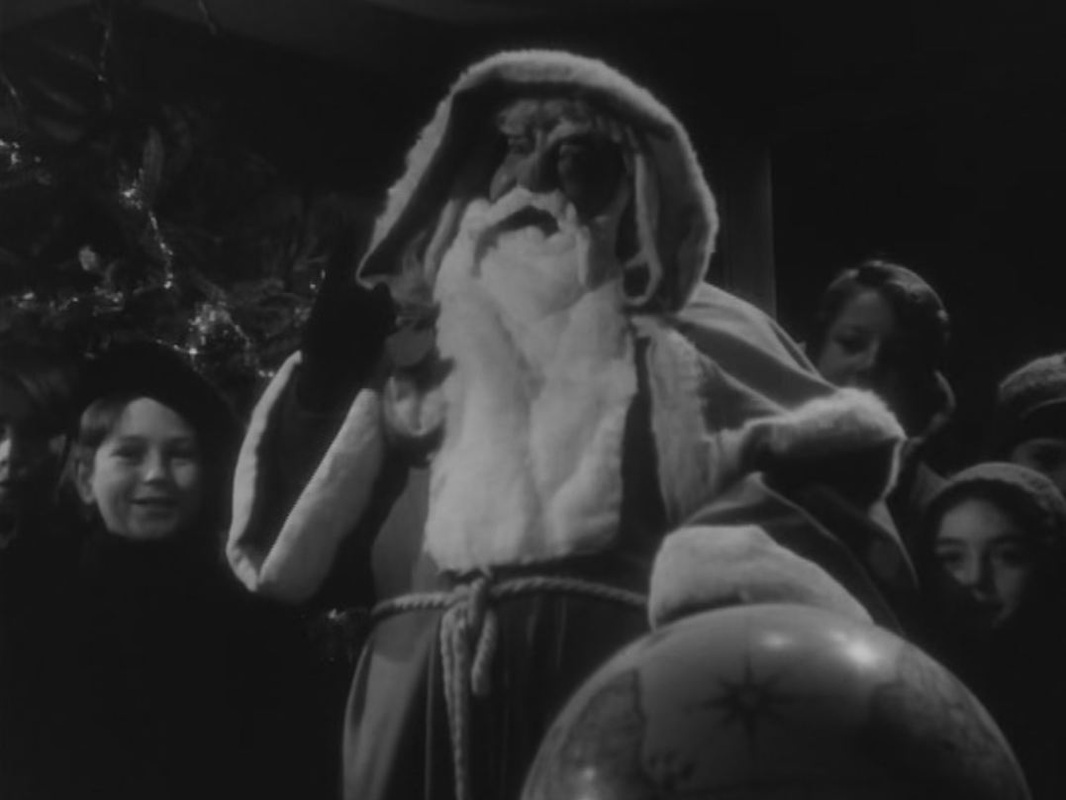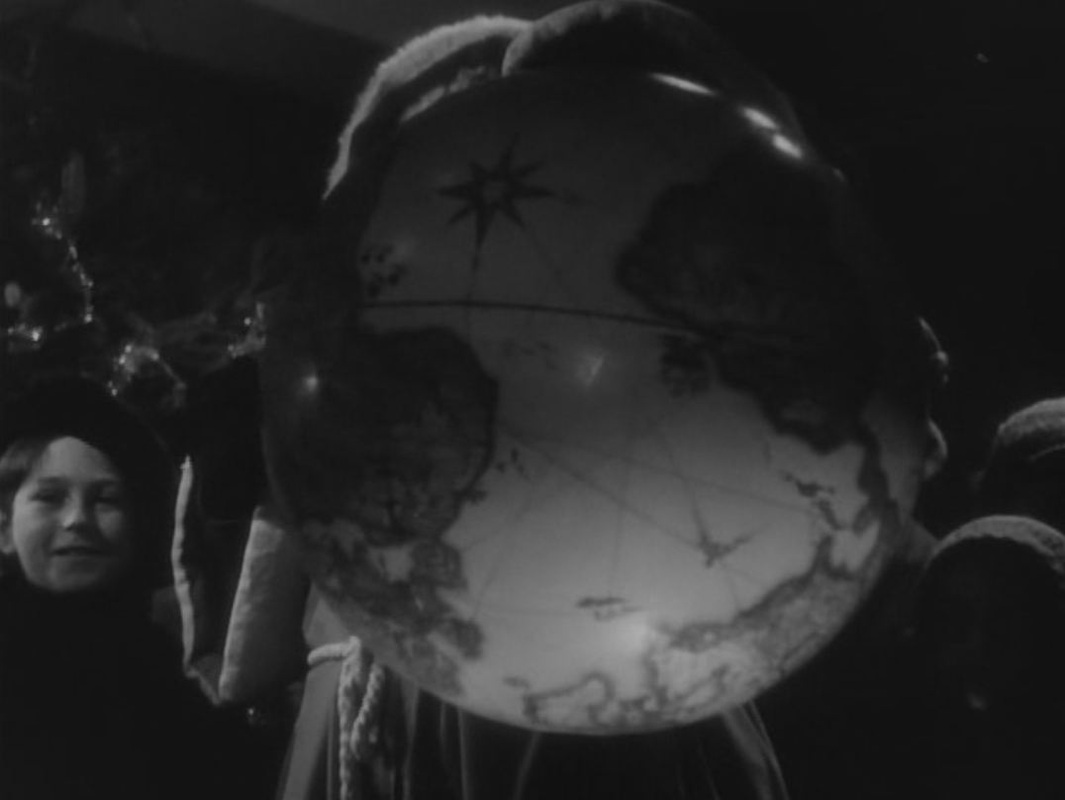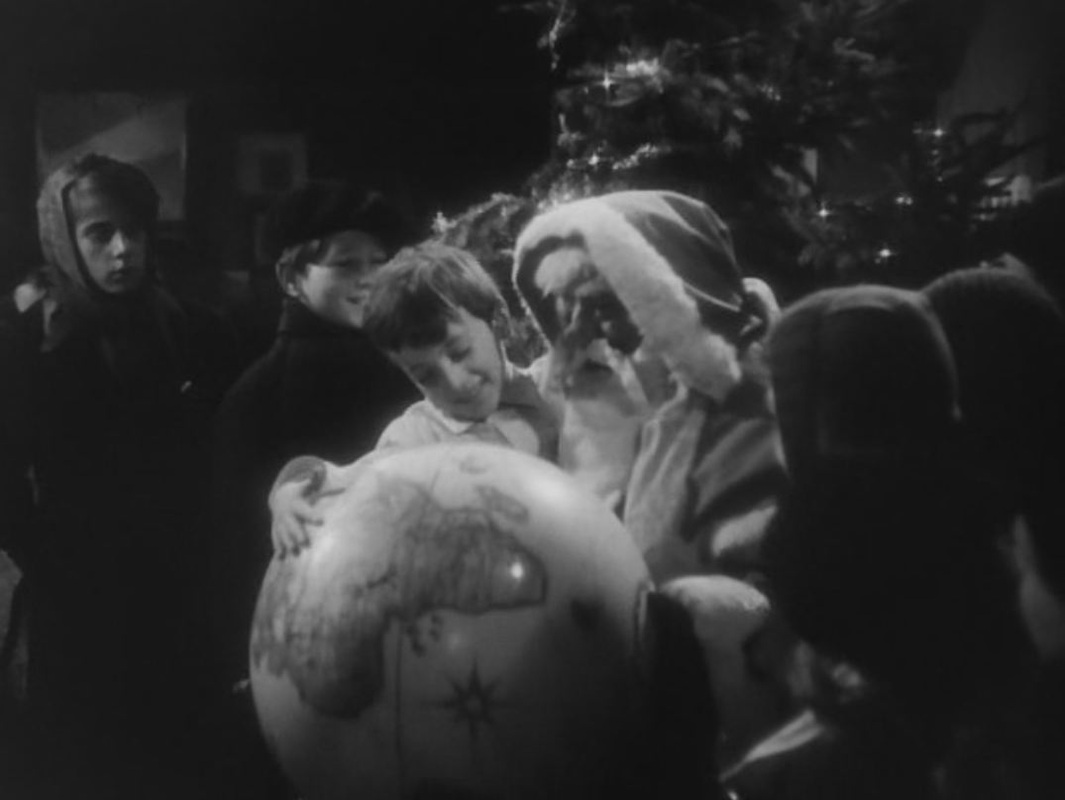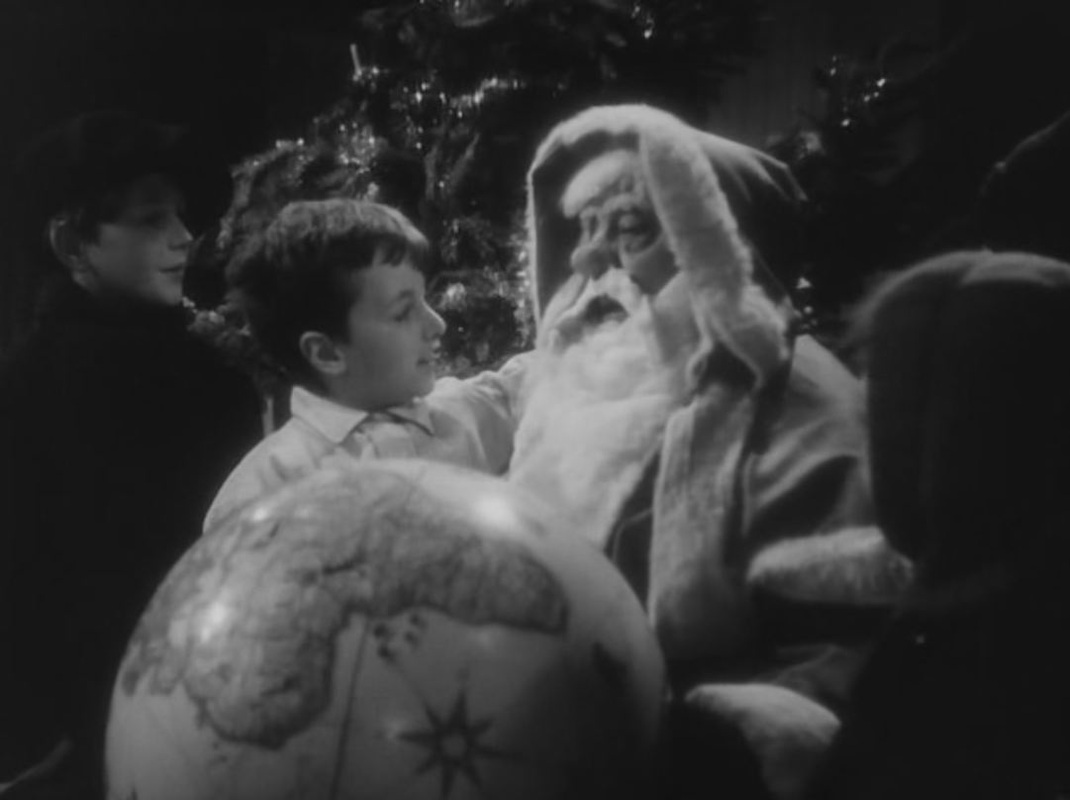Kristin Thompson & David Bordwell, Film History (New York: McGraw-Hill, 2009), p.274.
The maps in the film point to a reading in terms of what is happening in the world beyond the village, i.e. France, as above, in the globe-maker's curious addition of modern war planes to the embellishments of his pre-modern depiction of the world. The part of the globe shown here is very much the other side of the world, but a connection with France is suggested because the globe shows Indo-China, a French possession.
In the schoolroom, this map showing the Soviet Union, just as the German offensive on the Eastern Front was building momentum, would make a similar point about the world beyond France, but if there is a message relating to the situation of France it is in the proverb displayed above: 'Bien mal acquit ne profite jamais' (there is no profit in goods ill-acquired). We may conclude that the Germans will not profit from their acquisition of France, nor from their efforts to acquire Russia:
Later still, and beyond allegory, the death of Harry Baur under torture by the Gestapo makes it difficult for us not to read the films he made under the Occupation as emblems of resistance to oppression.
